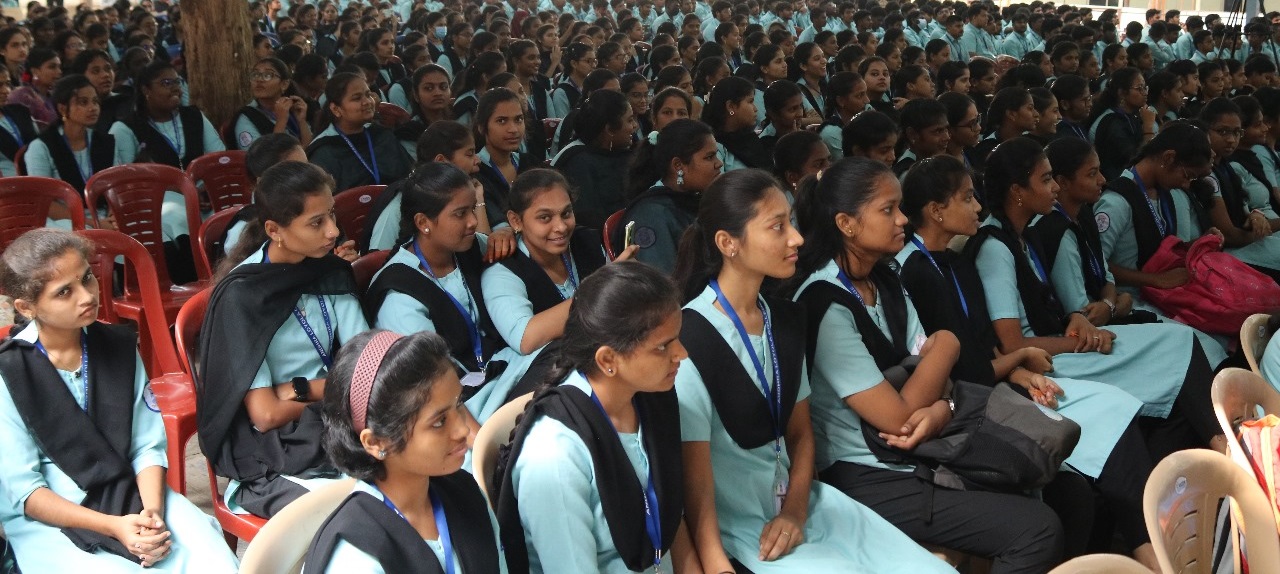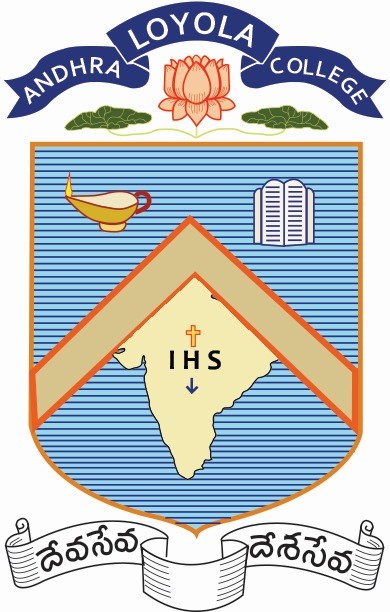Part-A
IQAC Data
-
AQAR Of The Previous Year (2021-22)
-
Academic Calendar
-
Composition Of The IQAC
-
Minutes Of IQAC Meeting
-
Plan Of Action Chalked Out By IQAC
Extended Profile (2022-23) Templates
-
1.1 Programmes Offered
-
2.1 Number Of Students
-
2.2 Final Year Students
-
2.3 Students Who Appeared For The Examinations
-
3.1 Number Of Courses
-
3.2 Number Of Full-Time Teachers
Part-B: (2022-2023)
CRITERION I - CURRICULAR ASPECTS
-
1.1.1 Curricula Developed And Implemented
-
1.4.1 Structured Feedback And Review Of The Syllabus - URL For Stakeholders Feedback Report
-
1.4.2 Feedback System - Feedback Collected, Analyzed And Action Taken
CRITERION II - TEACHING-LEARNING AND EVALUATION
-
2.2.1 Special Programmes For Both Slow And Advanced Learners
-
2.3.1 Student-Centric Methods
-
2.3.2 Teachers Use ICT-Enabled Tools - ICT Enabled Tools Including Online Resources
-
2.5.3 IT Integration And Reforms In The Examination Procedures And Processes
-
2.6.1 Programme Outcomes And Course Outcomes
-
2.6.2 Attainment Of Programme Outcomes And Course Outcomes
-
2.6.3 Pass Percentage Of Students - List Of Programmes And Number Of Students Appear For And Passed In The Final Year Examinations
-
2.7.1 Student Satisfaction Survey
CRITERION III - RESEARCH, INNOVATIONS AND EXTENSION
-
3.1.1 Institution Research Facilities - URL Of Policy Document On Promotion Of Research
-
3.2.2 Research Projects
-
3.2.4 Departments Having Research Projects - Link To Funding Agencies Website
-
3.3.1 Ecosystem For Innovations
-
3.4.2 Number Of PhD Candidates Registered Per Teacher - A Research Page On HEI Website
-
3.4.4 Books And Chapters In Edited Volumes
-
3.6.1 Extension Activities Carried Out In The Neighbourhood
CRITERION IV - INFRASTRUCTURE AND LEARNING RESOURCES
-
4.1.1 Infrastructure And Physical Facilities For Teaching-Learning
-
4.1.2 Facilities For Cultural Activities, Yoga, Sports And Games
-
4.2.1 Integrated Library Management System
-
4.3.1 IT Policy
-
4.3.4 Facilities For E-Content Development
-
4.4.2 Established Systems And Procedures For Maintaining And Utilizing Physical, Academic And Support Facilities
CRITERION V - STUDENT SUPPORT AND PROGRESSION
-
5.1.3 Capacity Development And Skill Enhancement Activities
-
5.3.2 Student Council And Representation Of Students
-
5.4.1 Alumni Association And Its Chapters
CRITERION VI - GOVERNANCE, LEADERSHIP AND MANAGEMENT
-
6.1.1 Governance Of The Institution
-
6.1.2 Effective Leadership
-
6.2.1 Institutional Strategic/ Perspective Plan - Strategic Plan And Deployment Documents
-
6.2.2 Functioning Of The Various Institutional Bodies- Link To Organogram On The Institution Webpage
-
6.3.1 Welfare Measures For Teaching And Non-Teaching Staff
-
6.4.1 Internal And External Financial Audits
-
6.4.3 Institutional Strategies For Mobilisation Of Funds And The Optimal Utilisation Of Resources
-
6.5.1 IQAC Has Contributed Significantly For Institutionalizing Quality Assurance Strategies And Processes
-
6.5.2 Institution Reviews Its Teaching-Learning Process, Structures And Methodologies Of Operation And Learning Outcomes
-
6.5.3 Quality Assurance Initiatives Of The Institution Annual Reports
CRITERION VII - INSTITUTIONAL VALUES AND BEST PRACTICES
-
7.1.1 Measures Initiated By The Institution For The Promotion Of Gender Equity
-
7.2.1 Best Practices
-
7.3.1 Highlight The Performance Of The Institution In An Area Distinct To Its Priority And Thrust



